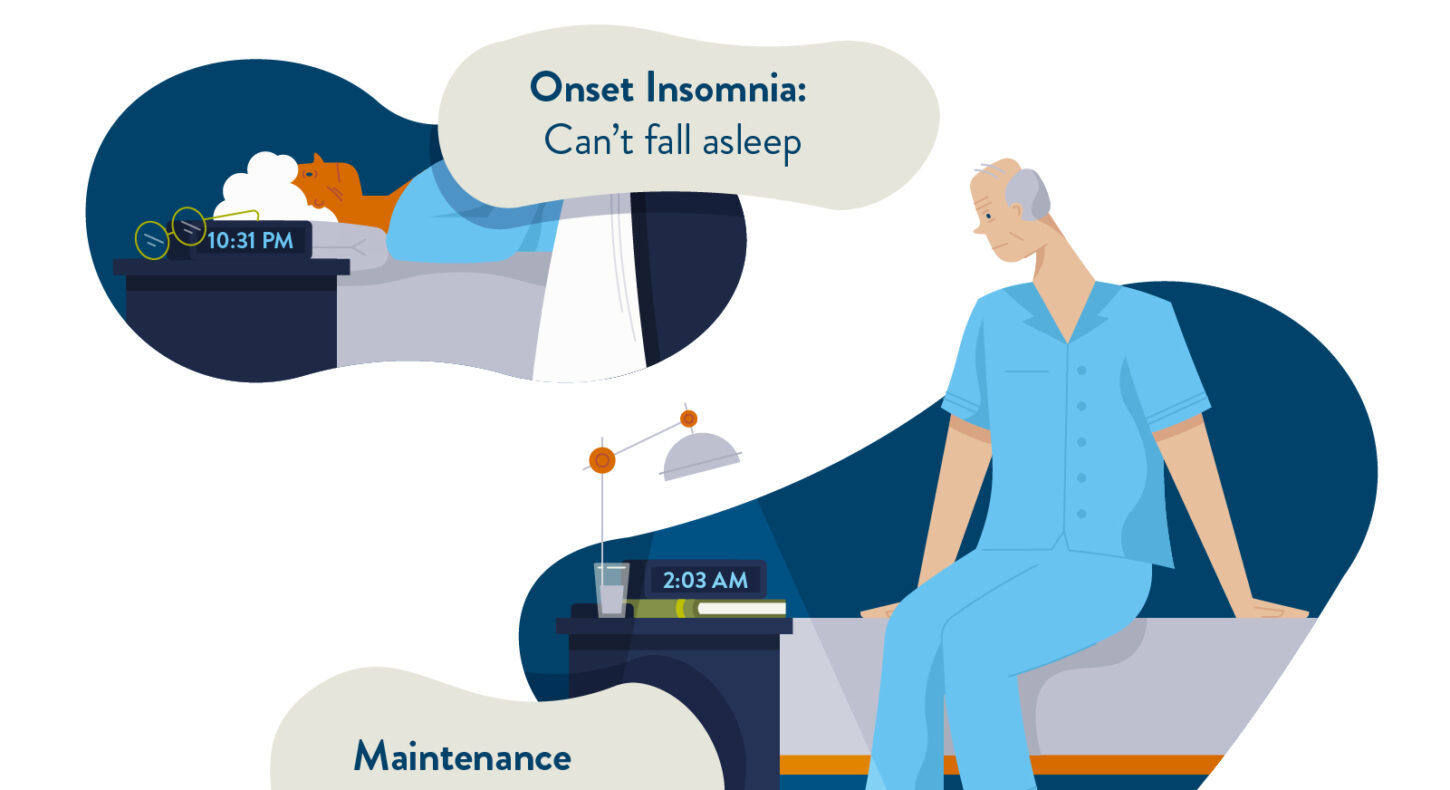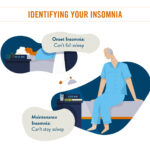The natural way to reduce symptoms
A common sleep disorder known as insomnia. However, people with insomnia face trouble sleeping. For them, it is very hard to fall asleep. Consequently, People have trouble falling asleep if they are sleeping at the right time and in the right situation. By this short description, you may get to know what symptoms of insomnia is.
This short-term sleeping disorder may be caused by stress, changes in schedule, and the environment. This short-term insomnia you may suffer for a few days or weeks. Similarly, chronic is a long-term insomnia but in this kind of problem, you may suffer for more than a week or months.
Moreover, if you are suffering from insomnia, your doctor will ask questions about your sleep patterns and our healthcare provider may give you some suggestions or therapy for regular sleep patterns.
Symptoms of insomnia?
Insomnia symptoms include
- Difficulty in paying attention, hard to focus on tasks, and remembering things.
- Feeling tiredness and sleeping during the daytime
- Not having frequent sleep at night
- Not feeling well-rested after a night’s sleep
- You’re making errors
- Feeling worried about sleep
- Waking up too early
- Feeling irritated, depressed, and anxiety
- Difficult to fall asleep
These are the symptoms of insomnia. If you suffer from any of them it is better to consult with the healthcare provider. If your doctor recognizes you could have a sleep disorder you may get some special testing related to sleep.
Causes of insomnia?
However, experts do not have any specific reason why insomnia happens, but there are many factors by which we can get an understanding of insomnia. Some of these factors may cause it. We need more research to understand precisely why and how insomnia occurs.
Some factors can cause insomnia:
- Genetics is a prime factor in causing insomnia. therefore, If you have any family history of insomnia, this can be a reason.
- Medical conditions can be a reason for insomnia. Physical health can affect the ability to sleep, and temporary illnesses, injuries, and minor illnesses can be a factor in your sleep problems.
- Mental health conditions like anxiety and depression can affect your sleep.
- Difficult life circumstances and stress a very common factors to contribute to insomnia.
- A good sleep habit gives you better sleep, but if your sleeping routine is disturbing. Consequently, your sleep can be disturbed. For example, at what time you go to sleep, are you taking naps, at what time you are taking caffeine and other habits related to sleep can cause you insomnia.
- More active brains and differences in brain chemistry can affect the ability to sleep.
Habits to treat insomnia
Usually, If you are having sleeping problems, you may consult with your doctor first and your doctor may give you some recommendations to treat insomnia.
- Make a schedule, for instance, set a time to go to bed and wake up at the same time every day.
- When you are ready to sleep make sure your bedroom is dark and quiet so you can rest easily.
- Exercise is a better option to make your mind calm as a result, you can sleep easily.
- Make sure your bed is comfortable so that you can sleep properly.
- Relax before you go to bed, do breathing exercises, and meditate and you can read a book.
Types of insomnia
Generally, Insomnia is classified by duration:
- Short-term insomnia is known as Acute.
- Insomnia for months and years is known as Chronic.
Doctors classify insomnia by cause:
- Primary insomnia is an issue by itself.
- Similarly, Secondary insomnia is a result of another health issue.
Insomnia classified by severity:
- Lack of sleep that leads to tiredness comes under mild insomnia.
- Moderate insomnia can affect daily functioning.
- A significant impact on daily life comes under severe insomnia.
Frequently asked questions
What are the three types of insomnia?
Generally, there are three types of insomnia: Transient insomnia (Less than one month), Short-term insomnia (Between one and six months), and Chronic insomnia – More than six months.
How do I control my insomnia?
There are some techniques to control insomnia like sticking to a sleep schedule, keeping your bedtime and wake time consistent from day to day, including on weekends, and staying active. Therefore, check your medications, Avoid or limit naps, Avoid or limit caffeine, and alcohol, don’t use nicotine, Don’t put up with pain, and Avoid large meals and beverages before bed.
What other problems can insomnia cause?
Some problems can cause Mental health disorders, for example, depression, anxiety disorder, and substance abuse.
Is meditation good for treating insomnia?
Yes, to treat insomnia naturally meditation is a good option. Consequently, It makes your mind calm and helps you sleep well.
How does insomnia affect the body?
A lack of sleep can affect your body and can cause health issues for example weight gain, liver problems, higher blood sugar levels, and depression.
Conclusion
As a result, In this article, we learned about the symptoms and causes of insomnia. This disorder causes sleeping problems and other symptoms like stress, anxiety, mental health problems, depression, and heart problems. Therefore taking the right steps to get rid of insomnia disorder is a better solution. Also, it protects you from other life issues.



